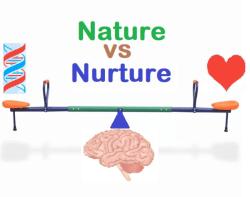Why is an inferiority or superiority complex called a complex?
In psychology, the term "complex" is used to describe a pattern of thoughts, feelings, memories, and perceptions that are organized around a particular theme. The concept of a complex was introduced by Swiss psychiatrist Carl Jung, and it has been widely used to understand various aspects of human psychology.
A complex, in psychological terms, is a grouping of related thoughts, memories, and emotions that are organized around a central theme. These complexes influence an individual's attitudes, behaviors, and perceptions, often at an unconscious level. Both inferiority and superiority complexes fall under this broader understanding of psychological complexes.
Here's why the terms "inferiority complex" and "superiority complex" are called complexes:
Inferiority Complex:
- An inferiority complex is characterized by feelings of inadequacy, low self-esteem, and a persistent belief in one's own inferiority. The term "complex" is used because these feelings are not isolated incidents but are part of a larger, interconnected network of thoughts, emotions, and memories that revolve around the theme of inadequacy.
Superiority Complex:
- A superiority complex involves an attitude of superiority and an exaggerated belief in one's own abilities, importance, or qualities. Similar to an inferiority complex, the term "complex" is used because these attitudes are not isolated; instead, they are part of a larger system of thoughts and emotions that revolve around the theme of superiority.
The use of the term "complex" reflects the idea that these patterns of thinking and feeling are not simple or isolated phenomena. Instead, they are complex structures that influence a person's overall psychological makeup. Jung's concept of complexes emphasizes that these patterns often operate at an unconscious level, shaping a person's perceptions and behaviors without their conscious awareness.
In summary, an inferiority or superiority complex is called a complex because it involves a network of interconnected thoughts, emotions, and memories organized around a central theme of inadequacy or superiority. These complexes play a significant role in shaping an individual's self-perception, behavior, and emotional responses.
Why are feelings of inferiority or superiority termed as complexes?
Feelings of inferiority and superiority are termed as "complexes" for several reasons:
1. They are deeply rooted and persistent: Unlike fleeting emotions, these feelings tend to be deeply ingrained in the individual's psyche and persist over time. They are not simply temporary responses to specific situations but rather represent ingrained patterns of thought and behavior.
2. They are unconscious and automatic: Often, individuals with inferiority or superiority complexes are not fully aware of the underlying causes and motivations for their feelings. These feelings operate at an unconscious level, influencing their thoughts, emotions, and actions without their conscious knowledge.
3. They are comprised of multiple components: These feelings are not simply one-dimensional emotions. Instead, they are complex constellations of emotions, beliefs, and experiences that interact and influence each other. For example, an inferiority complex may involve feelings of shame, inadequacy, and a need to seek validation from others.
4. They form a core organizing principle: These complexes often serve as the core organizing principle of an individual's personality and self-concept. They influence how they perceive themselves, others, and the world around them. This can lead to distorted perceptions and dysfunctional coping mechanisms.
5. They require professional intervention: Due to their deeply ingrained nature and unconscious operation, effectively addressing these feelings often requires professional intervention. Psychotherapists can help individuals identify the root causes of these complexes, develop healthier coping mechanisms, and build a more realistic self-image.
Therefore, the term "complex" accurately captures the multifaceted nature of these feelings and their significant impact on individuals' lives. It highlights their depth, persistence, unconscious nature, and the need for specialized support for effective management.











